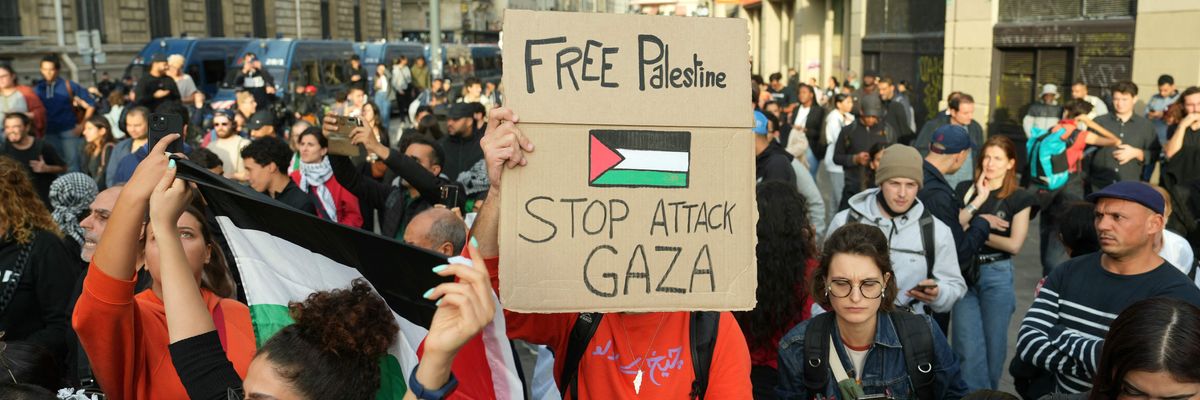Hundreds of French citizens on Thursday defied the government's newly announced ban on pro-Palestinian rights protests, gathering in central Paris to demand an end to the violence in Gaza.
French Interior Minister Gérald Darmanin announced the ban after reports of antisemitic incidents in France—including graffiti showing swastikas and anti-Jewish messages—which followed Hamas' brutal attack on Israeli civilians last weekend and the Israel Defense Forces' (IDF) retaliation on Gaza.
At least 1,537 Palestinians, including 500 children, have been killed so far in the blockaded enclave, prompting calls for a cease-fire from the United Nations and progressive lawmakers in the United States.
But Darmanin claimed that gatherings of people with similar demands were "likely to generate disturbances to public order."
"The organization of these prohibited demonstrations should lead to arrests," he said Thursday.
When Parisians gathered in defiance of the ban, police responded by firing tear gas and water cannons at the crowd.
"France banned Palestinian solidarity protests, but people still showed up," said Sana Saeed of Al Jazeera. "That's how it's done."
Charlotte Vautier, a nonprofit employee who attended the rally on Thursday, toldReuters it was unfair of the government "to forbid [protesting] for one side and to authorize for the other."
"We live in a country of civil law, a country where we have the right to take a stand and to demonstrate," she said.
The ban was announced days after France joined the United States, Germany, the United Kingdom, and Italy in making a joint statement in support of Israel's right "to defend itself"—without calling for the protection of civilians' lives—as Israel unleashed an air assault on Gaza.
As U.S. journalist Paul Blest noted, police in Berlin also banned Palestinian solidarity protests this week, while U.K. Labour Party Leader Keir Starmer claimed Israel has the "right" to cut off Gaza residents' access to food, water, and electricity—a violation of the Geneva Conventions.
"The response to this from so-called liberal democracies has been nothing short of fucking insane," said Blest. "Incredibly grim times."
